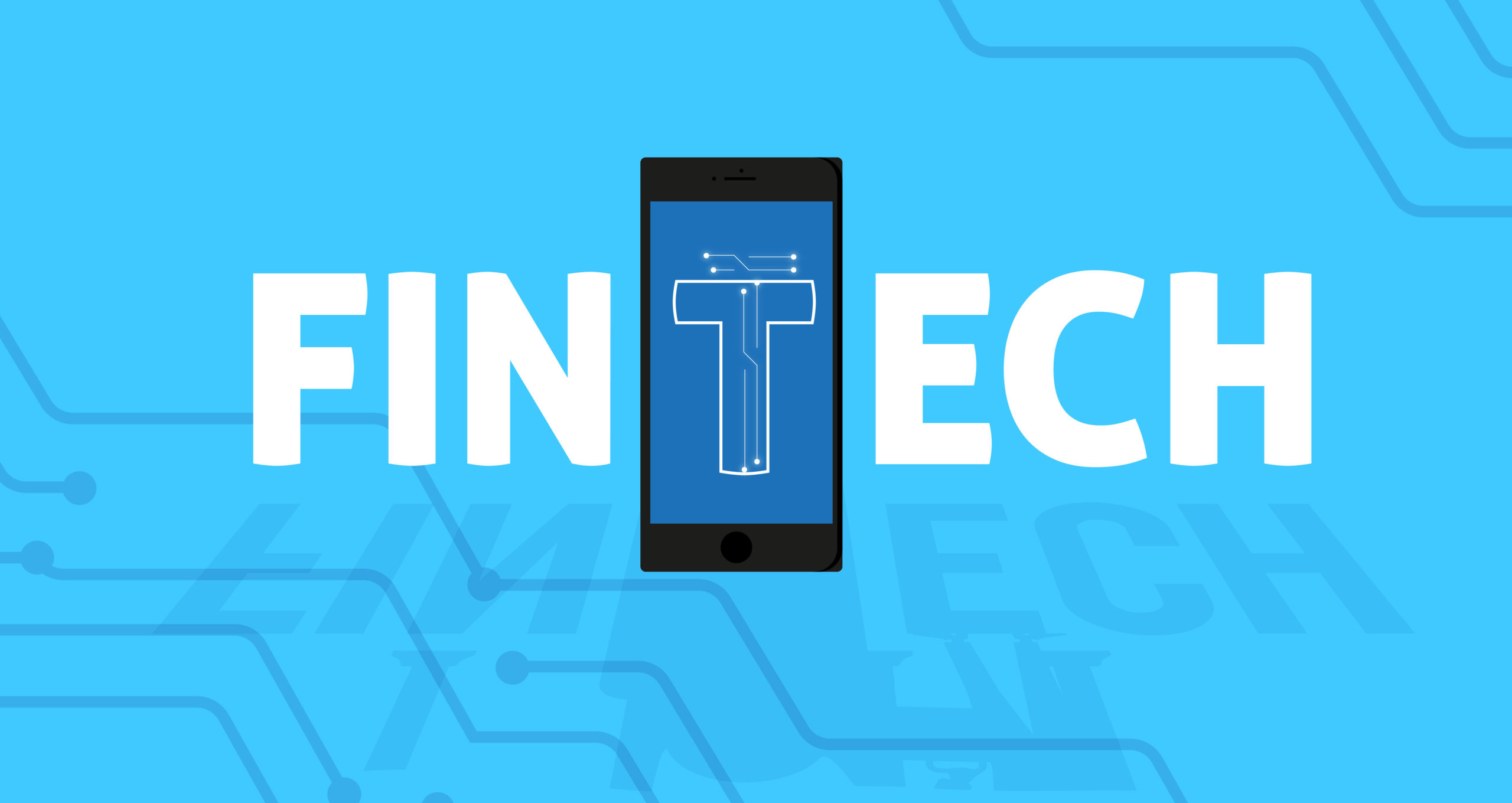
Technology has transformed the finance industries around the world. Economies like China and the U.S. have massively improved their financial services by introducing innovative financial technologies in the banking, financial management, and insurance sectors. Fintech in Bangladesh is still lagging behind in comparison with other developed nations in terms of using technology to automate and digitalize financial activities.
The financial institutions of Bangladesh have been repeatedly criticized for their lack of effort to improve financial inclusion, poor customer care facilities, lack of risk management of information technology (IT), and inefficient operations due to the usage of suboptimal technology. The world is moving on to more digital forms of transactions where financial institutions in Bangladesh are still struggling to gain and keep more customers. It’s time for the country to catch up.
What is Fintech?
Technology has made it easier for customers to access financial services from anywhere. It’s a technology that replaces existing systems and makes them better. It includes everything from money transfers to server management. Easy transactions or intuitive management systems – you name it, and Fintech delivers.

Mobile Financial Services (MFS), like bKash, Trust Axiata Pay (TAP), and Nagad, are very popular and loved by the people of Bangladesh nowadays. These institutions cater to around 35 million people with an annual credit of over USD 7 billion. They have done an incredible job to successfully bring a vast majority of people under the umbrella of digital financial services. So let’s dive into what is next for Fintech in Bangladesh and how it can improve the financial landscape.
Impact of Fintech in Bangladesh
Fintech in Bangladesh has totally changed the financial landscape. There have been several growing fintech companies in Bangladesh over the years. Since the pandemic has inspired people into cashless transactions, fintech companies in Bangladesh have welcomed this opportunity to make a meaningful and noteworthy impact in Bangladesh.
Creating Opportunities for Financial Access
Digital banking can radically change the lives of the people working in the informal sector. MFS and Agent banking are considered key drivers in the financial inclusion strategy by providing low-income groups and disadvantaged people access to financial services at affordable costs. MFS transactions rose by around 30% since last year and till March agent banking has seen 108.38% year-on-year growth in deposits.
Financial Institutions can Know Their Customers Better
It’s no surprise that Big Data, Machine Learning, and Artificial Intelligence are driving many business decisions in the modern age. Financial services in many countries use big data to screen potential clients. The system can do extensive background checks in a flash. All these can help to reduce and prevent money loss for loaners who can assess the viability of a loan or investment. The whole system is intuitive, smooth, and easy to use and most of all, it gives accurate results and predictions.
For financial institutions in Bangladesh, this technology is crucial. The percentage of bad loans and poor investments is staggering with 11.4% of recipients defaulting. In the first quarter of 2021, defaulted loans accounted for 8.07% of total outstanding loans. Fintech which assists in digitally retrieving customer data and calculating expected loss can help reduce that percentage by a significant amount. They can not only reduce time but also improve customer satisfaction.
Increased Efficiency Leading to Enormous Cost Reductions
Technology penetration is approximately less than 40% in Bangladesh. There are several financial services that can be automated. Fintech can bring personalized ledger systems and real-time investment plans to the table. Online transactions can take place much faster with more security. Even big data can help banks catch on to market trends in the blink of an eye; data is the new currency.
Fintech offering financial management services is delivering a transformational user experience, by enabling the users to track their bank accounts, credit card details, investment details, loan balances, and transactions. They can also enhance services by implementing chatbots which are essentially software robots that can converse with customers, enhancing their banking experience.
Remittances are also an important part of the economy. Still, the process is suboptimal. There are many hidden conversion and handling fees that financial institutes have to bear. Apart from remittances, banks also incur costs when sending or receiving money. Fintech can help reduce a lot of these costs.
Updating customer databases and managing customer profiles become much faster with the implementation of technology. The reduced administrative lag can go a long way in helping reduce costs in the long run.
Substantial Security Benefits

Financial institutes in Bangladesh are far behind in cyber security and risk management. Recently, 147 public and private organizations – including banks and non-bank financial institutions (NBFIs), came under cyber attacks. Bangladesh Bank itself has often faced cyber-attacks which led them to lose millions of dollars.
Integrating artificial intelligence and machine learning for fraud detection, blockchain systems, and regulatory technologies (RegTech) with financial services, will help build a secure system. E-KYC can also help in preventing money laundering activities by enhancing customer identification and authentication processes.
Fintech-enabled payment processing can help bring more cash transactions under the formal sector, thereby mitigating malpractices, improving transparency, and providing better fund protection for customers. Digital payments can also reduce the amount of money to be printed, thus reducing the risks of counterfeit money. It can also help financial institutions maintain consistency in their operations and reduce the risks of error.
Reach Wider Markets
Fintech in Bangladesh is particularly important because to date the majority of the population in Bangladesh lives in rural areas. To attain SDG goals it is important that the rural residents aren’t deprived of any financial services. With the help of the internet and the booming number of fintech companies in Bangladesh, that vision isn’t far away.
With the internet, we are all connected. There’s no reason why financial entities shouldn’t hop on that train. Financial institutes can introduce their services to a wider market.
Bangladesh’s financial markets where stocks, bonds, etc. are sold could see a significant transformation by leveraging Fintech. Starting from financial advisory, domestic and international online trading platforms to using technology to improve regulation in stock exchanges, the potential for Fintech in Bangladesh is massive. Wealth management, for example, has been one of the financial services that have been disrupted in a big way by FinTech. With the implementation of big data, artificial intelligence, blockchain, and other supportive technologies like RegTech, the financial markets will work more efficiently and securely.
Fintech companies in Bangladesh should be encouraged to help create accessible and affordable consumer credit products such as peer-to-peer (P2P) lending platforms, crowdfunding platforms, and alternative credit scoring apps. Insurance companies in Bangladesh should widely accept insurance in their operations for wider availability of insurance products, increased accountability, and transparency.
Top Fintech Companies in Bangladesh
Giga Tech Ltd.
Companies like Giga Tech are already leading the way in implementing Fintech in Bangladesh’s financial institutions. To address and mitigate the present issues facing Financial Institutions and Critical Mass, GIGA TECH’s aim is to serve as a bridge that connects the two. GIGA E-KYC enables Financial Institutions to digitally onboard consumers in a matter of minutes while guaranteeing compliance with AML/CFT regulations and policies.
Having has worked with more than a dozen financial institutions in the implementation and integration of e-KYC solutions. With years of experience working with several financial institutions in Bangladesh, and partnered with some of the largest international Fintech companies across the globe to deliver exemplary solutions, Giga Tech Ltd is one of the top fintech companies in Bangladesh.
Giga Tech strives to not only be the best Fintech company in Bangladesh but also around the globe.
To know more about Giga e-KYC and Giga Tech’s Fintech services, click here.
bKash Limited
bKash Limited is a subsidiary of BRAC Bank Limited. bKash allows safe, convenient, and easy means to make payments and money transfers via mobile phones. It is currently one of the world’s biggest mobile financial services providers. They have the biggest MFS market share in Bangladesh. The majority of the population of Bangladesh lives in rural areas, which have limited access to financial institutions and services. bKash has helped rural residents to access various financial services regardless of the lack of accessibility to financial institutes.
Trust Axiata Digital Limited
Trust Axiata Digital Limited is a mobile financial services company founded on May 29, 2020. It was established under the joint venture between “Trust Bank Limited, Bangladesh” and “Axiata Digital Services Sdn Bhd, Malaysia” who own 51% and 49% respectively.
Trust Axiata Pay (TAP) is a mobile financial service launched by Trust Axiata Digital Limited. It aims to revolutionize the way customers transact in today’s increasingly digital and mobile world by offering high-end Digital Lifestyle Services.
The Future of Fintech in Bangladesh
No matter how you slice it, the future is with Fintech. The technology has enormous potential for growth, innovation, and cost savings. There are lots of untapped opportunities in Bangladesh. Innovation in financial services should go hand in hand with growth as the country graduates to a developing nation.
Out of 83 countries, Bangladesh ranked 78th on the Global Fintech index 2021; declining 17 points since last year. This slow adaptation of technology may hinder the country’s growth. (Source: Dhaka Tribune)
It is time for the Bangladeshi financial landscape to adopt Fintech. We should leverage our younger population, a growing number of mobile subscribers, and millions of internet users to boost more Fintech disruption and adaptation. To achieve sustainable growth, it is essential for financial institutions and the government to prioritize Fintech going forward.
Cooperation Between Fintech Companies in Bangladesh
Lack of interoperability among the service providers makes it difficult to transact money from one service provider to another. Imagine if you had a GP sim and you could call people who only own a GP sim!
Instead of having separate systems, it is important to have a broader, inclusive system. Fintech companies in Bangladesh need to work together to deliver the optimum service to customers. The synergy between the service providers will make data sharing and analytics far smoother. For instance, consumers may use one wallet for all their needs through their multichannel digital wallets.

